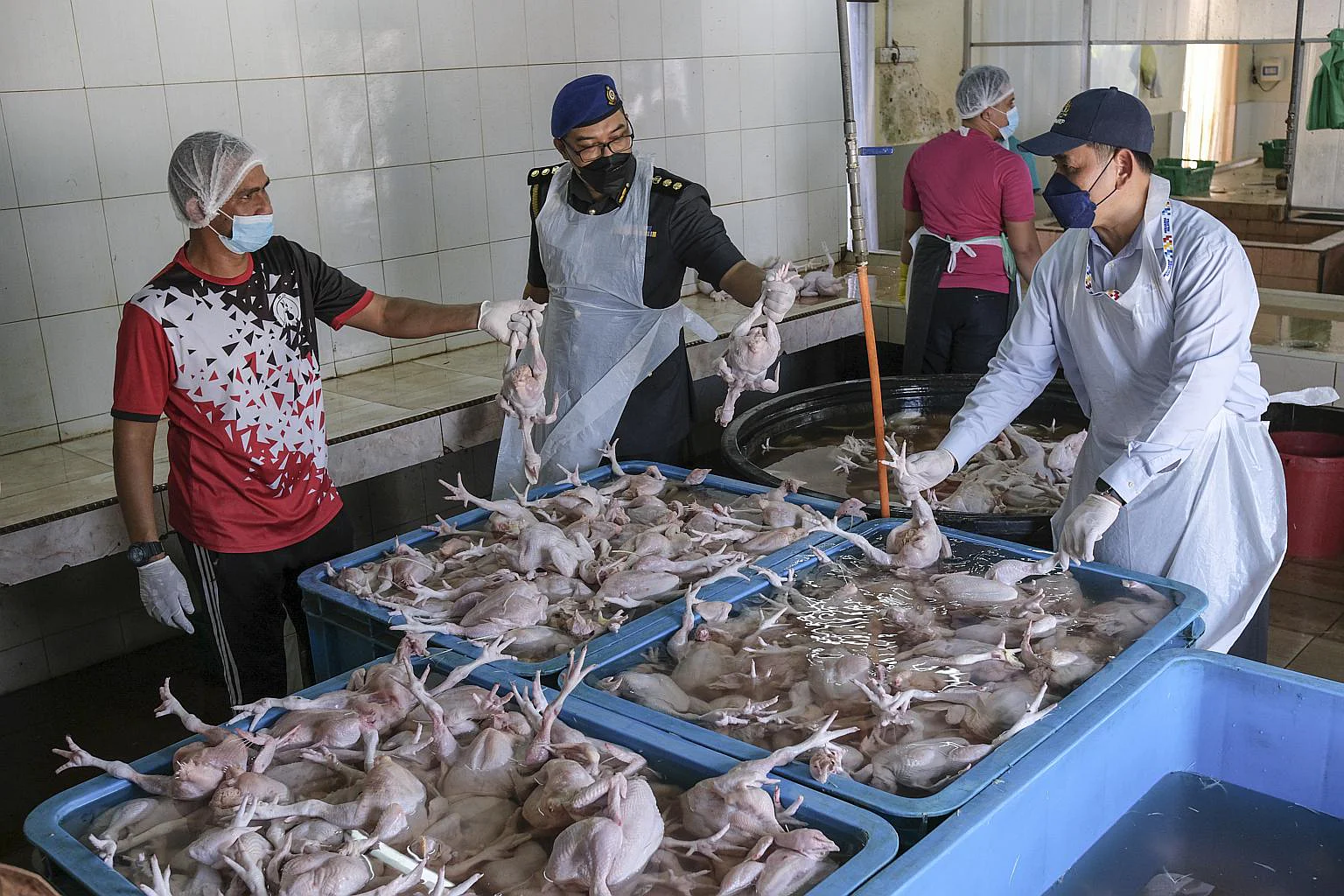June 15, 2022
SINGAPORE – Malaysia has partially lifted its ban on chicken exports, allowing poultry producers and importers in Singapore to bring in live kampung chickens from across the Causeway.
According to importer Kee Song Food, the Malaysian authorities allowed the company to resume importing live kampung chickens on Tuesday (June 14). It will also start bringing in black chicken from Malaysia from Saturday (June 18).
Kee Song head of business development James Sim provided The Straits Times with a letter from the Department of Veterinary Services of Malaysia which stated that the Malaysian government has agreed to allow exports of live kampung and black chicken, following a Cabinet decision made on June 8.
The letter also stated that the export ban on commercial broiler chicken – larger chickens that make up the bulk of what Singapore typically imports from Malaysia – remains.
A top Malaysian government official, who declined to be named, confirmed with ST that the export ban has been partially lifted to allow exports of kampung and black chicken.
Mr Sim on Tuesday said Kee Song has already started taking orders for fresh kampung and black chicken. The company’s clients include wet market poultry sellers, chicken rice hawkers and restaurants.
Malaysia had banned chicken exports on June 1 to stabilise production and prices within the country. Singapore, which imports about a third (34 per cent) of its chicken supply from Malaysia, saw a sharp drop in its supply of fresh chicken in the first two weeks of this month.
Most of the chicken Singapore gets from Malaysia is imported live and slaughtered in abattoirs here. Singapore also imports chicken from countries such as Brazil and the United States, but a majority of this is usually frozen.
Chicken rice hawkers and wet market poultry sellers here mainly sell broiler chickens. Kampung chicken and black chicken are smaller varieties of chicken which are considered premium and more expensive.
Mr Sim said: “We are bringing in as much kampung chicken as we can, though it is subjected to what is available from the farms. Kampung chicken is a different breed from the broiler chicken. They are slimmer and tougher.”
At Kee Song Food, kampung chicken makes up about 25 per cent to 30 per cent of the overall chicken supply. Black chicken makes up about 3 per cent to 5 per cent.

Terengganu Ministry of Domestic Trade and Consumer Affairs director Saharuddin Mohd Kia (right) inspecting the premises of a chicken wholesaler on June 14, 2022. PHOTO: BERNAMA
Though the company is still unable to import broiler chicken from Malaysia, Mr Sim said the partial lifting of the ban is a good start.
“It shows that there is some improvement on the Malaysia side and I believe there will be better days ahead,” he said.
Smaller players here, like Muslim-owned e-mart Halal Mart, also welcomed the provision to allow kampung chickens to be brought in.
“It’s good news because a lot of customers prefer to use fresh chicken… they say frozen chicken is not as good, and is tasteless,” Halal Mart partner Kamal Kamarudin told ST.
Before the export ban, Halal Mart used to bring in and sell about 50 to 100 broiler chickens a day, and a few hundred kampung chickens a week, depending on demand.
Currently, they sell frozen chicken from Brazil and chicken parts like wings, drumsticks and breast meat. The online store sells directly to customers via home delivery, as well as to some hawkers and restaurants.
“Suppliers have not given us an update on prices (for kampung chicken), but I expect it will go up quite a bit,” added Mr Kamal.


